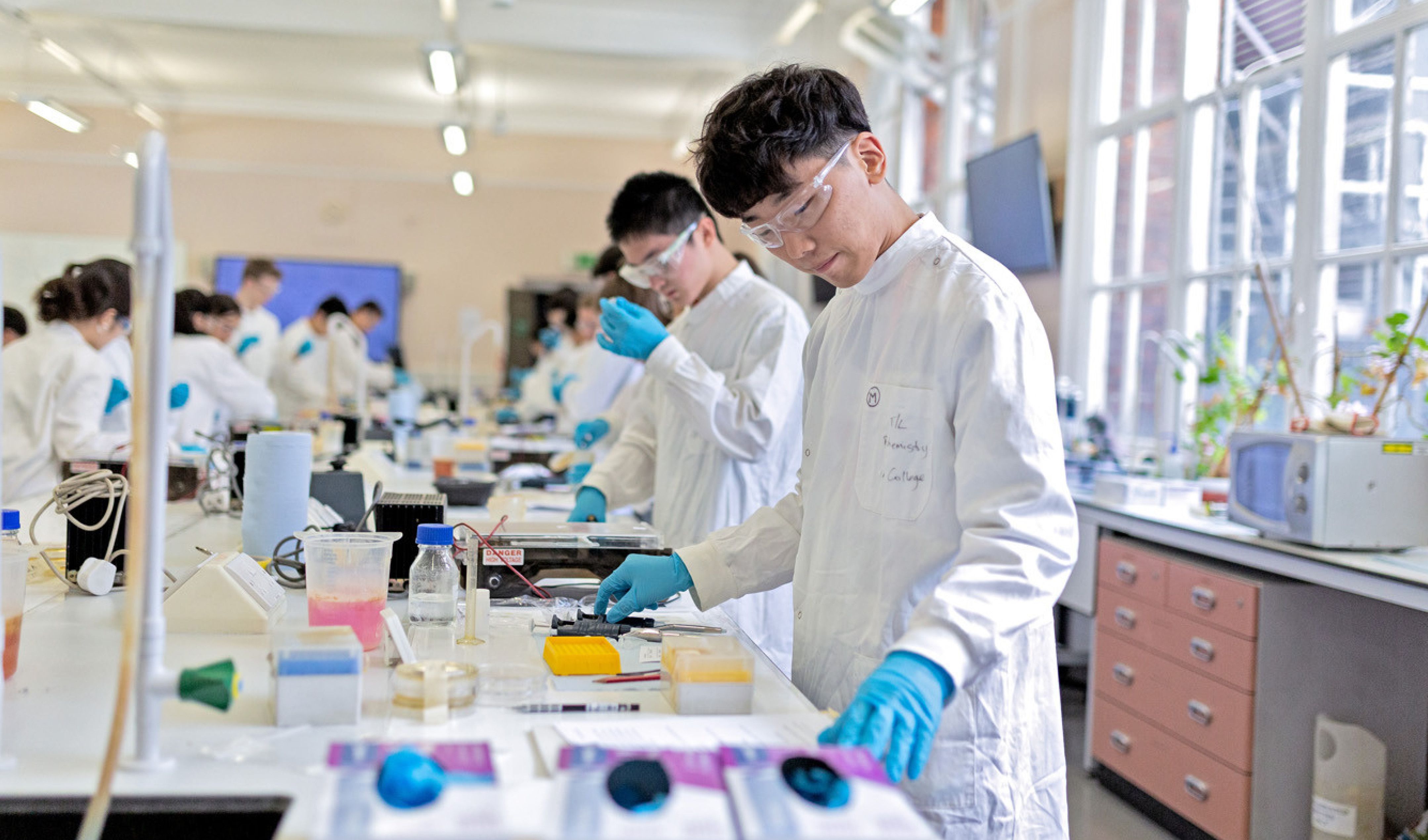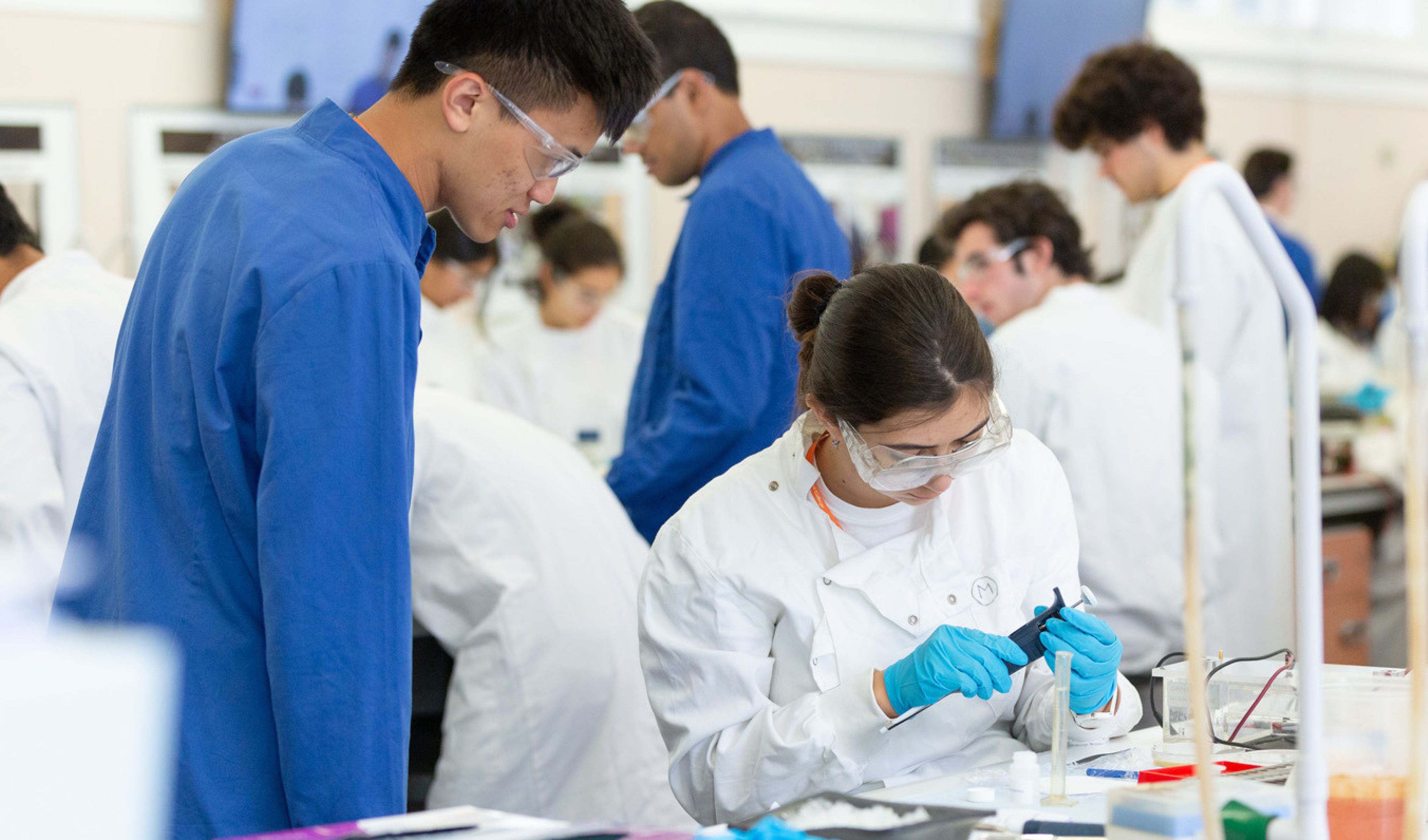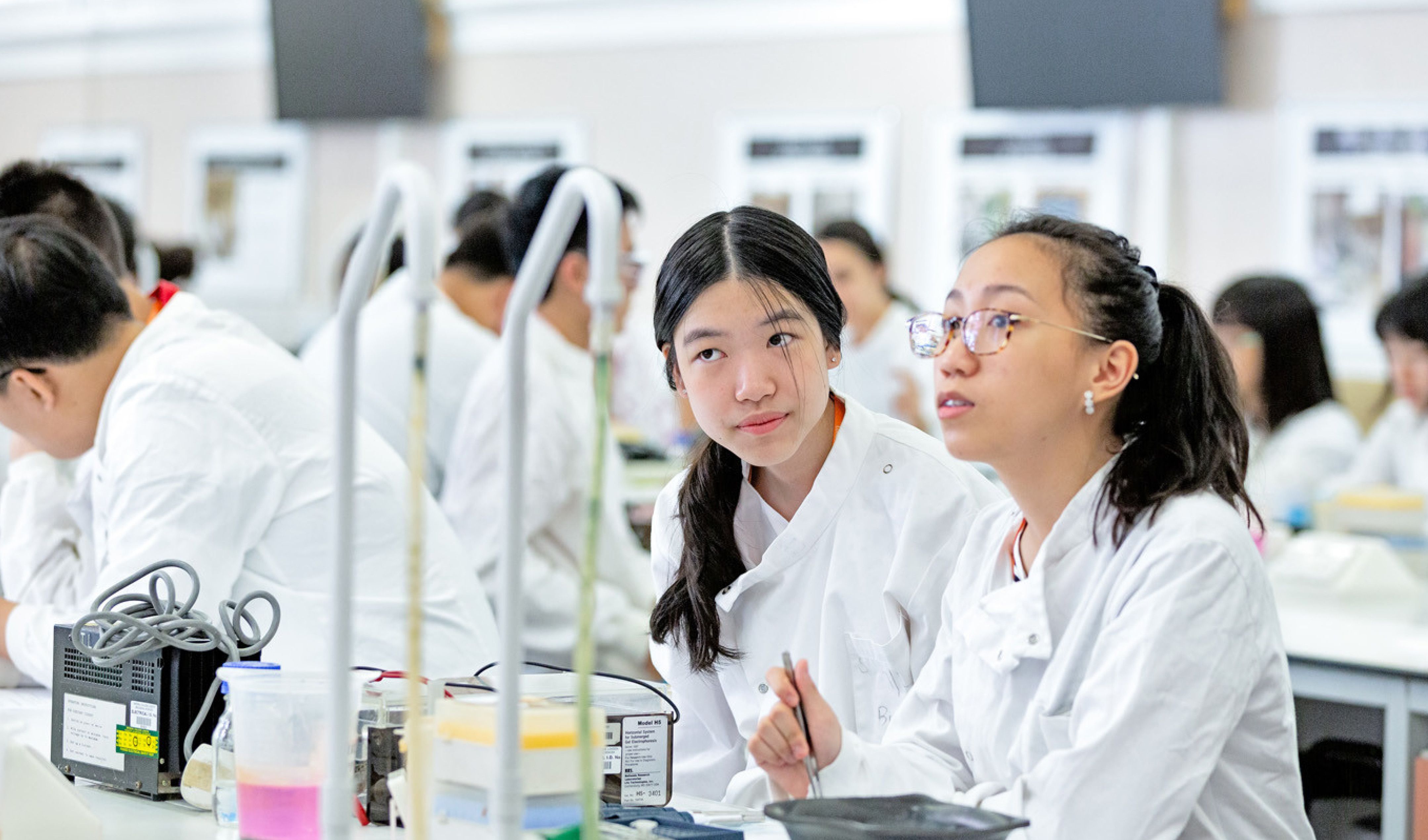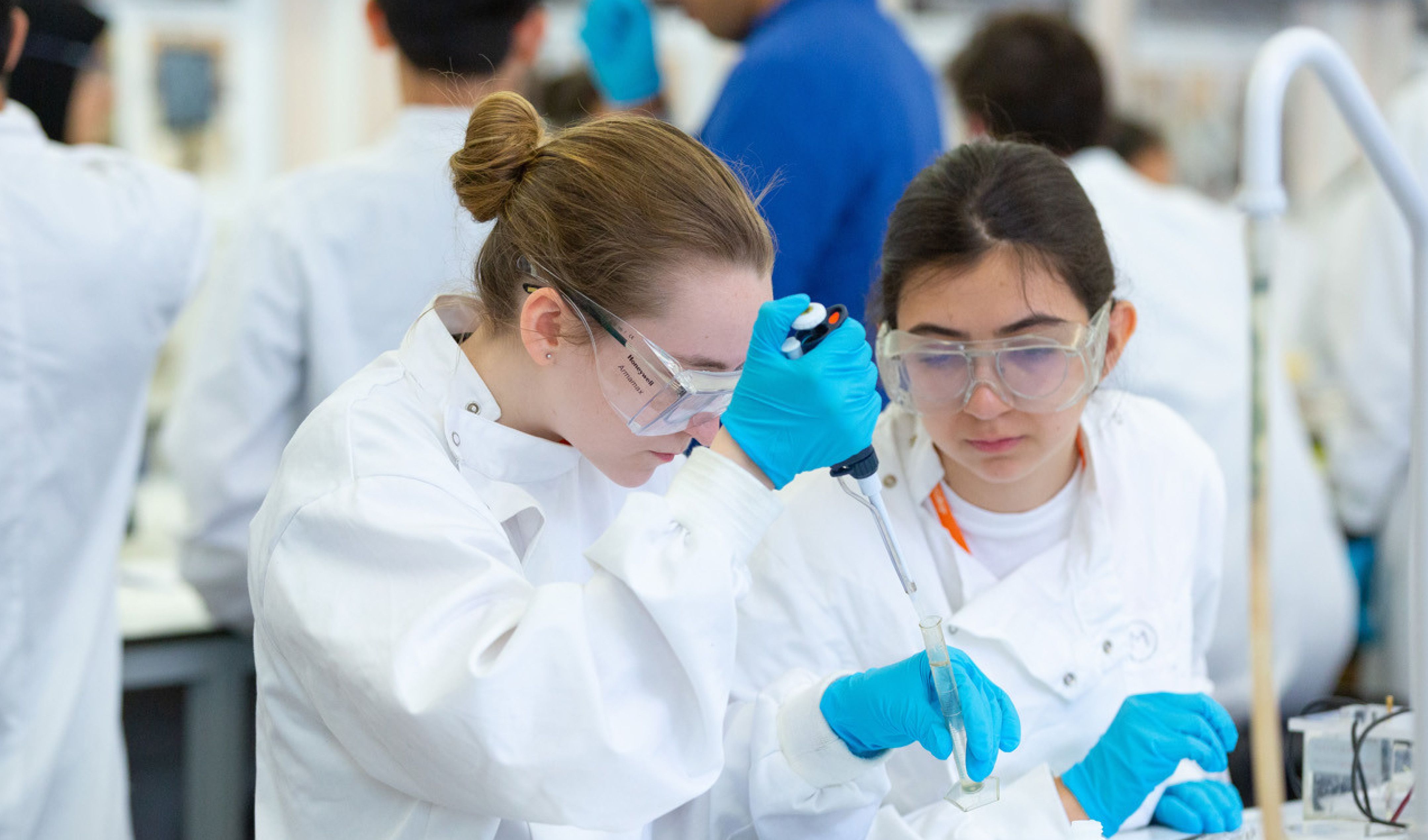Medicine and Life Sciences will introduce you to new research techniques and subject content.
In the past, students have:
- Conducted practical experiments, collected and analysed data.
- Spent a day learning real clinical skills.
- Encountered new concepts and systems in lecture-led teaching sessions.
- Worked as part of a team to analyse case studies and construct a genogram.
- Developed their understanding of molecular biology theory and practice through a range of practical activities.
Week one: Sample session outline
Urinary system (July only)
Following an introduction to the urinary system and its role in the body, you will conduct a practical urine analysis using dipsticks. As a group, you will develop management strategies for ensuring healthy kidney function.
-
Summarising the urinary system.
-
Studying the structure of kidney nephron and identifying the compounds absorbed/secreted in each area.
-
Understanding the process of urine production, transfer and storage.
-
Using urine dipstick testing to diagnose basic disorders
Understanding Endocrinology and Diabetes (August only)
Hormones affect every organ in the body, and regulate important physiological processes including growth, metabolism, stress and reproduction. You will investigate what happens when certain hormonal systems go wrong, and how we can diagnose and treat endocrine disease.
From bench to bedside: Exploring the immune response to microbes
You will explore the fascinating world of host-pathogen interaction and the effectiveness of interventions that improve human health by preventing or controlling the spread of disease.
-
ABCDE assessment
-
Measuring blood pressure
-
Measuring blood glucose levels
-
NEWS scoring
-
Basic life support
-
Heart scan
-
Neck scan
-
CPR
-
Becoming an emergency leader
-
Welcome;
-
Allocation of safety gear, into groups and benches;
-
H&S training, micropipette (Gilson) handling
-
Fly genetics theory & practical discussion;
-
Experiment #1: identification of gene providing lacZ activity;
-
Experiment #2: identification of location of lacZ expression in modified fly larvae – demonstration;
-
Optional life sciences guest lecture;
-
Experiment #3: visualisation of Green Fluorescence Protein (GFP) plasmid containing strain;
-
Experiment #4: thermo-sensitivity assay;
-
Making sense of results.
-
Experiment #5: genomic DNA preparation;
-
Experiment #6: PCR amplification of fly DNA
-
Experiment #7: agarose gel electrophoresis
-
Making sense of the results from Experiments 1, 2, 3, 4 & 5 (discussion & conclusion).
-
Making sense of results – identification of the genotypes according to the Drosophila strains.
-
Prizes and farewell.
Week two: Innovation Challenge
In week two of the programme, you will come together with students from other academic subjects to share expertise and to help solve a real-world challenge.
The Innovation Challenge is led by the Imperial Enterprise Lab, a group of industry experts, and is a chance for you to develop vital skills you will need at university such as presentation, communication and group work.
Meet the teachers
Meet the teachers
Annachiara Rosa (July)
Teaching Fellow, Faculty of Medicine Centre
Academic staff
Danielle Bennett
Head Of Medical Education
Academic staff
Dr Katrina Sweeney (August)
Teaching fellow





